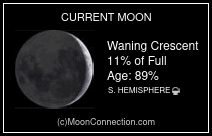The plain Georgian exterior of 50 Berkeley Square belies an interior that still retains much of its 18th century grandeur. Sweeping stairs, high plaster ceilings, over-mantle mirrors, and marble floors and fireplaces, lend the building a decidedly Dickensian air. For over fifty years it has been the premises of Maggs Bros, Antiquarian Booksellers, and the ceiling high rows of heavy mahogany bookcases that line the walls are stacked with shelf after shelf of leather bound tomes by long dead men of letters - some famous, many forgotten. Yet there is nothing in the yellowed pages of the thousands of books on display that comes close to matching the sinister happenings that were once an everyday occurrence within these walls. Happenings so terrifying that, for much of the 19th century, 50 Berkeley Square was known simply as “the most haunted house in London.”
Charles Harper in Haunted Houses, published in 1907 stated that “… It seems that a Something or Other, very terrible indeed, haunts or did haunt a particular room. This unnamed Raw Head and Bloody Bones, or whatever it is, has been sufficiently awful to have caused the death, in convulsions, of at least two foolhardy persons who have dared to sleep in that chamber…” One of them was a nobleman, who scoffing at tales that a hideous entity was residing within the haunted room, vowed to spend the night there. It was agreed, however, that should he require assistance he would ring the servants’ bell to summon his friends. So saying, he retired for the night. A little after midnight there was a faint ring, which was followed by a ferocious peeling of the bell. Rushing upstairs, the friends threw open the door, and found their companion, rigid with terror, his eyes bulging from their sockets. He was unable to tell them what he had seen, and such was the shock to his system, that he died shortly afterwards.
As a result of its dreadful reputation, no tenant could be found who was willing to take on the lease of “the house” in Berkeley Square, and for many years it remained empty. But its otherworldly inhabitants continued to be active. Strange lights that flashed in the windows would startle passers-by; disembodied screams were heard echoing from the depths of the building; and spookier still, the sound of a heavy body was heard being dragged down the staircase. One night, two sailors on shore leave in London, were seeking a place to stay, and chanced upon the obviously empty house. Breaking in they made their way upstairs, and inadvertently settled down to spend the night in the haunted room. They were woken by the sound of heavy, determined footsteps coming up the stairs. Suddenly the door banged open and a hideous, shapeless, oozing mass began to fill the room. One sailor managed to get past it and escape. Returning to the house with a policeman, he found his friend’s corpse, impaled on the railings outside, the twisted face and bulging eyes, grim testimony to the terror that had caused him to jump to his death, rather than confront the evil in the room above.
Many theories have been put forward to account for the haunting of 50 Berkeley Square. Charles Harper reported that the house had once belonged to a Mr Du Pre of Wilton Park who locked his lunatic brother in one of the attics. The captive was so violent that he could only be fed through a hole, and his groans and cries could be heard in the neighbouring houses. When the brother died, his spectre remained behind to chill the blood and turn the mind of anyone unfortunate enough to encounter it. Another hypothesis holds that a Mr Myers, who was engaged to a society beauty, once owned the house. He had set about furnishing the building in preparation for their new life together when, on the day of the wedding, his fiancé jilted him. The disappointment undermined his reason, turning him into a bitter recluse. He locked himself away in the upstairs room and only came out at night to wander the house by flickering candlelight. It was these nocturnal ramblings that, so the theory goes, gave the house its haunted reputation.
Whatever the events, tragic or otherwise, that lie behind the haunting of 50 Berkeley Square, there is no doubt that the building has a definite atmosphere about it. Indeed, it is said that the fabric is so charged with psychic energy that merely touching the external brickwork can give a mild shock to the psychically inclined. Nor are the ghosts, as is often claimed, consigned to the buildings past. Julian Wilson, a bookseller with Maggs Brothers, was working alone in the accounts department, which now occupies the haunted room, one Saturday morning in 2001, when a column of brown mist, moved quickly across the room and vanished. That same year a cleaner preparing the house for a party, felt the overwhelming sensation that someone, or something, was standing behind her. Turning round she found that that the room was empty. A man walking up the stairs was shocked when his glasses were snatched from his hand and flung to the ground. In October 2001 I was asked to appear in a BBC documentary on Haunted London, and we were fortunate enough to film inside 50 Berkeley Square. Part of the programme entailed the soundman and myself having to stand in the dark in the haunted room for about five minutes, waiting for the signal to switch the lights on and off. Although nothing actually happened, I can honestly say that I found it a truly frightening experience, and we were both glad to be able to rejoin the rest of the crew in the street outside.

.jpeg)














